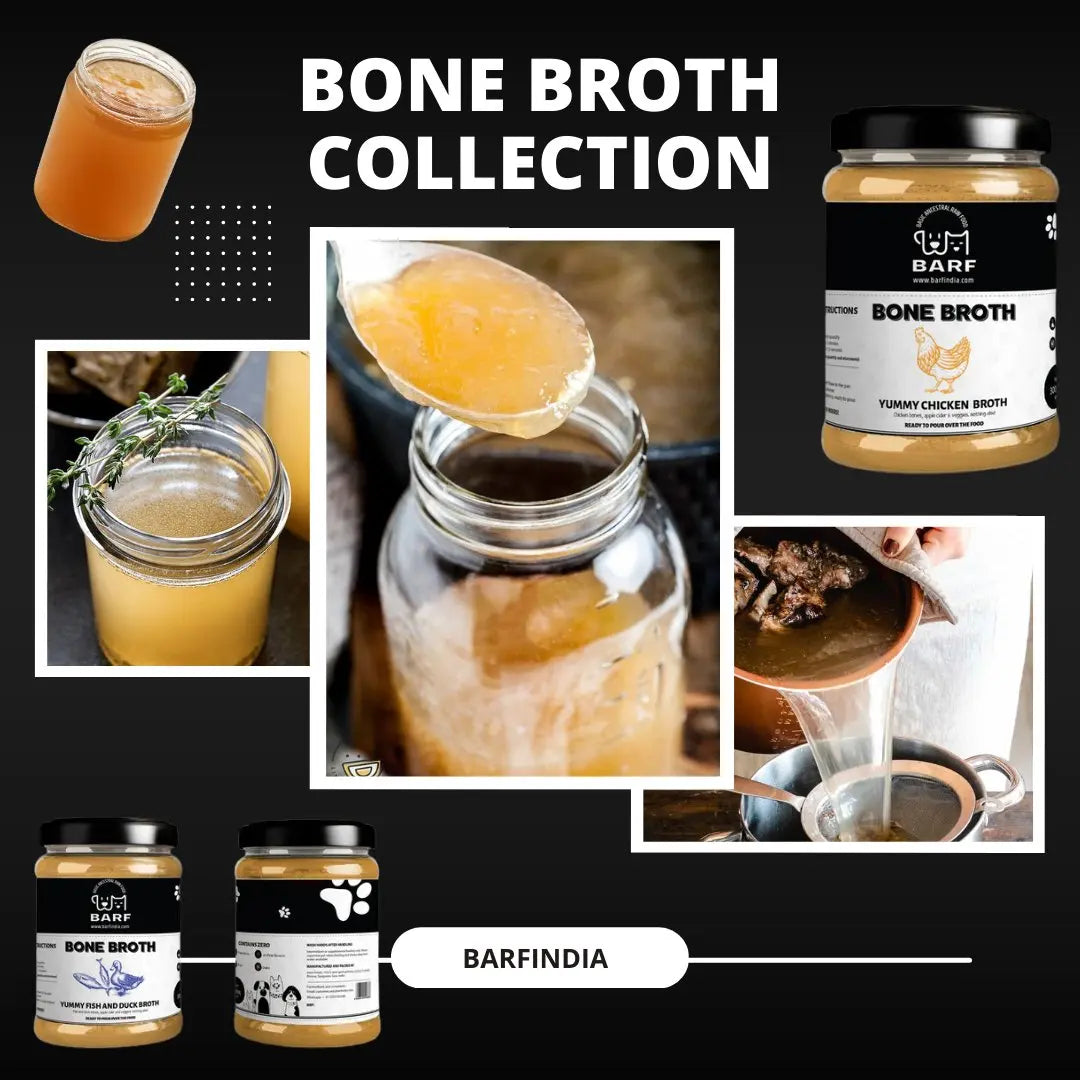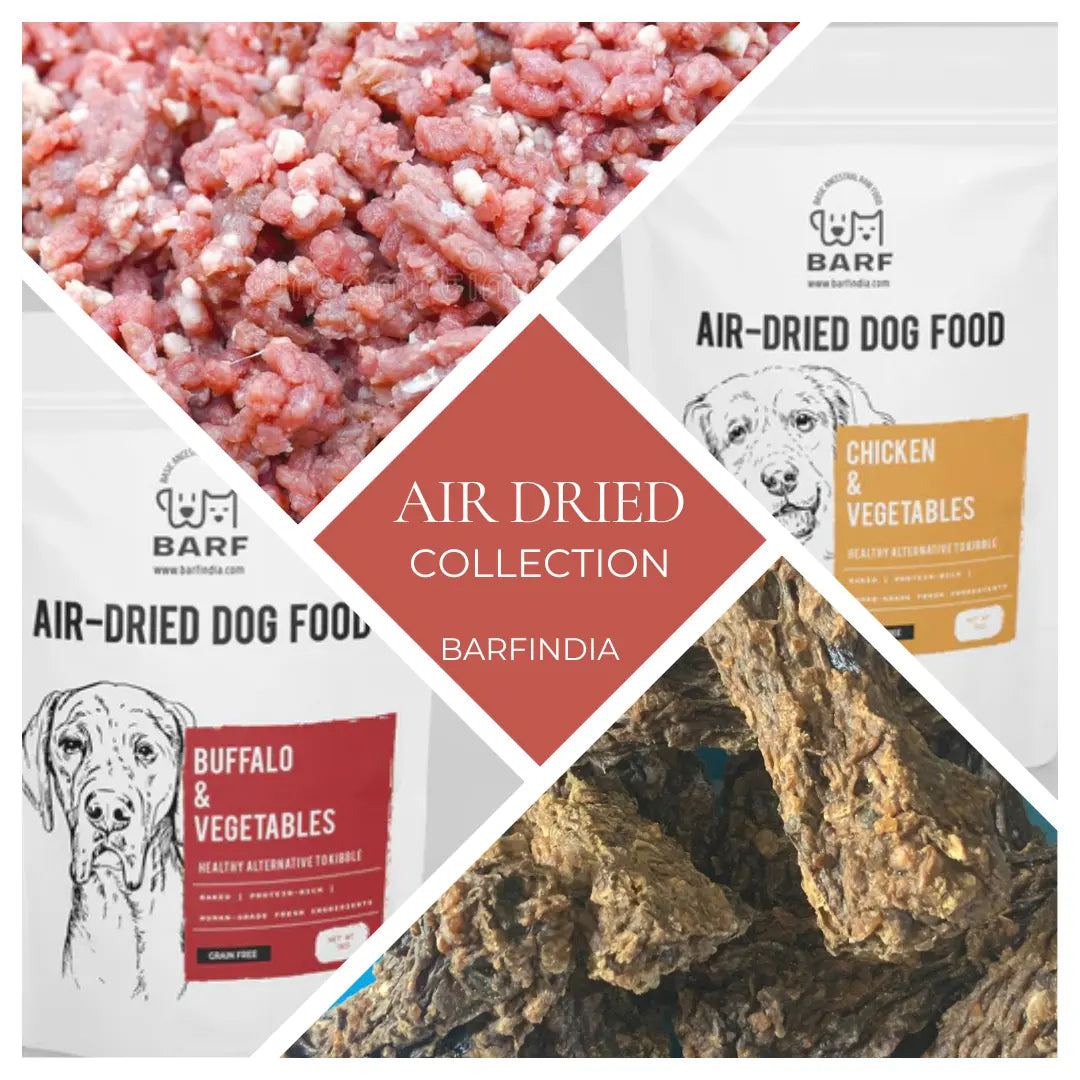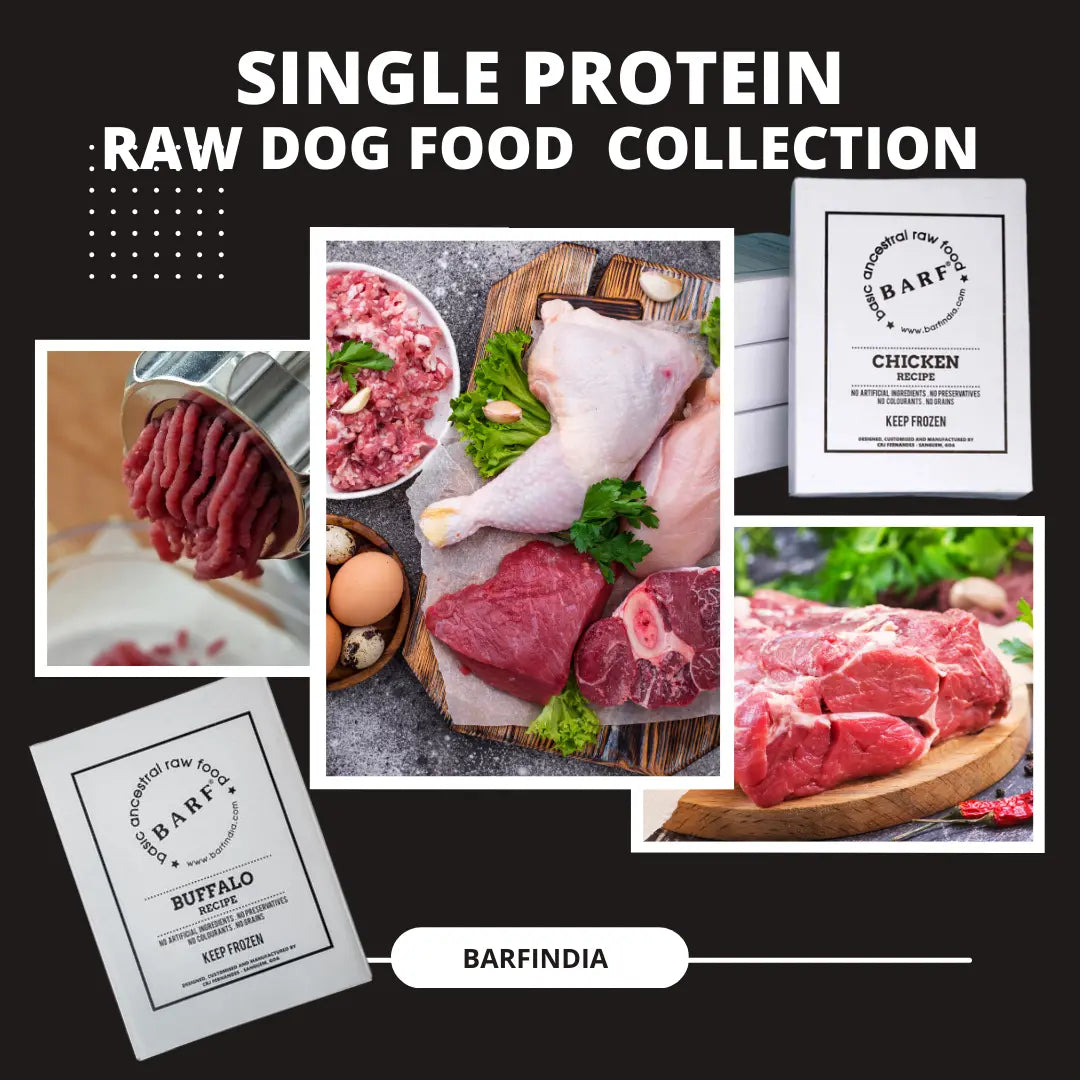
Giving Puppies a Healthy Start: The Benefits of Raw Food Diet
Nivedita FernandesExploring the Benefits of a Raw Food Diet for Growing Puppies
Introduction:
Welcoming a new puppy into your home is an exciting time filled with joy and anticipation. As a responsible pet owner, ensuring your furry friend receives the best nutrition from the get-go is paramount for their health and wellbeing. One dietary option that has gained popularity among pet owners is the BARF (Biologically Appropriate Raw Food) diet. This approach emphasizes feeding dogs raw, unprocessed foods similar to what their wild ancestors consumed. Starting puppies on a raw food diet from as early as 8 weeks of age can set them on the path to optimal health and vitality. In this blog, we'll delve into the benefits of raw food for puppies and explore how to get them started on this nutritious diet.
Understanding the BARF Diet:
The BARF diet is rooted in the belief that dogs thrive on a diet that closely mimics what their ancestors ate in the wild. This diet typically consists of raw meat, bones, organs, fruits, and vegetables, providing a balanced array of nutrients essential for canine health. By feeding puppies a BARF diet from a young age, pet owners can provide them with the building blocks they need for healthy growth and development.
Benefits of Raw Food Diet for Puppies:
-
Nutritional Superiority: Raw food provides puppies with a diverse range of nutrients in their most natural form. This includes essential vitamins, minerals, proteins, and fats that are easily absorbed and utilized by their growing bodies.
-
Improved Digestion: The natural enzymes present in raw food aid in digestion, reducing the risk of digestive issues such as bloating, gas, and diarrhea commonly associated with processed diets. Puppies fed a raw diet often have smaller, firmer stools, indicating efficient digestion and nutrient absorption.
-
Healthy Development: The balanced ratio of calcium and phosphorus found in raw bones supports strong bones and teeth, crucial for the rapid growth phase puppies undergo. Additionally, the amino acids present in raw meat promote muscle development and overall vitality.
-
Enhanced Immunity: A well-rounded raw diet provides puppies with antioxidants and other immune-boosting nutrients, helping to strengthen their immune systems and protect against common illnesses and diseases.
-
Improved Coat and Skin Health: The omega-3 fatty acids present in raw fish and certain meats contribute to a shiny coat and healthy skin, reducing the likelihood of skin allergies and irritations commonly seen in dogs fed commercial diets.
Getting Started with Raw Feeding:
Transitioning puppies to a raw food diet requires careful planning and consideration to ensure they receive adequate nutrition. Here are some tips to help you get started:
-
Gradual Transition: Start by gradually introducing raw food into your puppy's diet while gradually decreasing the amount of their previous food. This helps prevent digestive upset and allows their system to adapt to the new diet.
-
Variety is Key: Offer a variety of protein sources such as chicken, beef, turkey, and fish to ensure your puppy receives a wide range of nutrients. Incorporate organs such as liver and kidney for added vitamins and minerals.
-
Monitor Portion Sizes: Puppies have different nutritional needs than adult dogs, so it's essential to feed them an appropriate amount based on their age, size, and activity level. Consult with your veterinarian to determine the ideal portion sizes for your puppy.
-
Include Raw Bones: Raw, meaty bones are a natural source of calcium and phosphorus and help promote dental health by cleaning teeth and massaging gums. Always supervise your puppy when feeding bones to prevent choking or injury.
-
Balance and Supplements: Aim for a balanced diet that includes the right proportions of meat, bones, organs, fruits, and vegetables. Consider adding supplements such as fish oil or vitamin E to ensure your puppy's nutritional needs are met.
-
Hydration: Provide access to fresh, clean water at all times to keep your puppy properly hydrated, especially when feeding a dry diet like raw food, which contains a higher moisture content than kibble.
-
Regular Monitoring: Monitor your puppy's weight, energy levels, coat condition, and overall health regularly. Adjust their diet as needed based on their growth and development.
Conclusion:
Feeding puppies a raw food diet from a young age can lay the foundation for a lifetime of health and vitality. By providing them with the nutrition they need to thrive, pet owners can support optimal growth, development, and immunity in their furry companions. However, it's essential to approach raw feeding with caution and consult with a veterinarian or canine nutritionist to ensure your puppy's diet is balanced and appropriate for their individual needs. With proper planning and care, raw food can be an excellent choice for giving puppies the healthy start they deserve.



